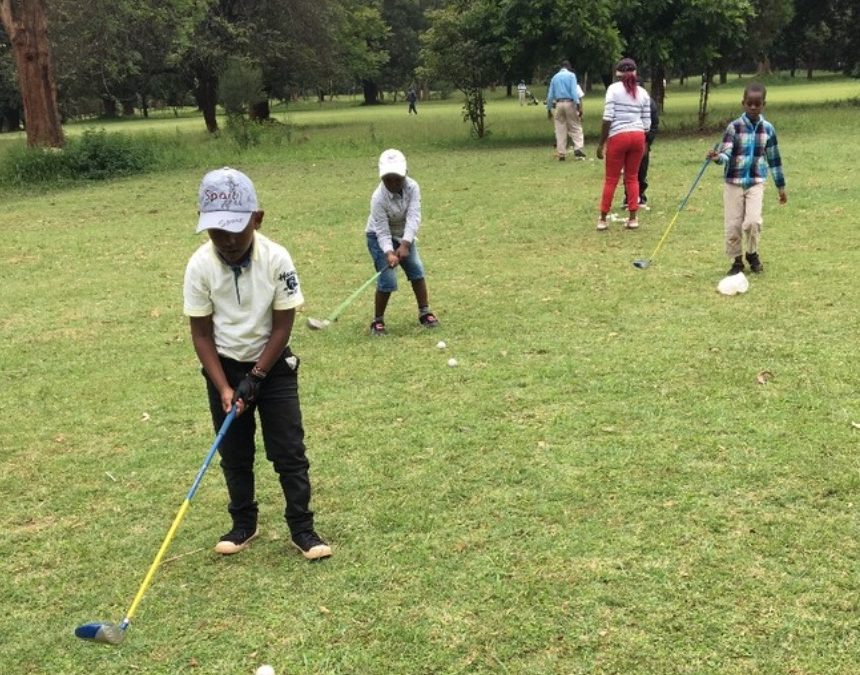Kenya has a shortage of qualified golf teachers. As such, KGU as the governing body, should find ways to allow qualified amateurs to become teaching pros without loosing their amateurs status.
For KGU to grow the game of golf, and especially at the junior level where talent needs to come from, they need to cultivate a pool of qualified golf teachers who’s main objective is to teach golf. And because the golf industry in Kenya is not as developed like USA or Europe, they need provisions to allow amateurs to teach without being penalized.
The Solution
This can easily be achieved by KGU creating a category of “golf teachers” and retaining golfers in this category as amateurs until the point they declare otherwise.
Just because someone has a good understanding of the golf swing, fundamentals of the game and the rules of golf, does not mean they are scratch or plus handicap golfers. The opposite is also true, a playing pro does not necessary translate to being a good golf teacher. Just because a person understands the golf swing well enough to teach it doesn’t mean that he has the skill to play to a “professional” level, whatever that might be. I’ve known quite a few amateur golfers who were as good as or better than any of the teaching pros at their home course. And the typical club pro probably plays less than the avid amateur because his job (which doesn’t involve playing golf) is often a 12 hour day 5 or 6 days a week.
Teaching Pro vs Playing Pro
Kenya has relied heavily on playing pros as the only qualified golf teachers. This affects the growth of the pro level play in several ways. For one, it takes time away from the pro. He will get less time to practice on his game as he focuses on the role of a club pro (teaching, planning tournaments, setting the field among many other roles they have to play at the club). Two, it creates a shortage for teaching pros for the pros. How would a club pro teach another pro that they in turn have to compete against?
In countries where the golf industry is more advanced, the number of qualified golf teachers aka teaching pros far outnumber the number of playing pros. This affords those countries to fully adhere to the stipulation about an amateur loosing his status for accepting pay for teaching golf. Why? Because there are enough teaching pros to allow them to organize leagues and competitions among themselves without necessarily going into the main pro circuits. Because honestly, most teaching pros are not plus handicappers and cannot compete in a pro field.
As a matter of fact, many top amateurs could easily beat many of the teaching pros in a competition. Why? Because the teaching pro does not get as much time to work at his game, many top amateur actually practice and work on their game more than teaching pros.
Kenya doesn’t have many qualified golf teachers – again because of the way the system is structured. Its high time we create rules and systems that will encourage those who have an understanding of the game to teach without being punished. Punished by being forced to turn pro where they cannot compete at the same level or staying an amateur for life while their contribution to the game is diminished because they life the thrill of competition.
It is a fact that upcountry clubs suffer most with the current rules. Why? Because most top amateurs and those who turn pro move to Nairobi where they there we have the best courses for them to work at and also play and practice to improve their games. Upcountry clubs remain without even those who are viewed as qualified to teach the game in their absence. New golfers and anyone who needs a lesson is left with only one option, being taught by caddies who have no understanding of the game let alone the basics on the golf swing. This inhibits the growth of the game of golf in Kenya!
Benefits
Effecting this rule/policy will result in the growth of the game of golf in Kenya as a result.
- Playing pros will focus on their games. Improving their game will open more doors for competitions in and out of the country where they can earn more from playing and not rely on teaching or club roles for their earnings. This will result in better performance even in our own Kenya Open. If pros perform better, even sponsors will be more willing to advertise through golf and more local or regional pro tournaments will be held in Kenya.
- It will attract top amateurs and even better caddies to venture into teaching golf resulting in more teaching pros country wide. This will result in growth on game in the junior ranks as well as growth in upcountry club memberships.
- It will create job opportunities. Golf is a big industry in many countries because of the number of people involved in the game at different capacities. This should be a goal in Kenya.
- Quality of competition at every level will increase. Playing pros will have more time to work on their game. Teaching pros will have opportunity to play in the amateur ranks.
- It creates an opportunity to put a curriculum together to teach more people the principles of the game and fundamentals of the golf swing. This can be a body under KGU or independent of KGU. People can specialize in areas of teaching over time such as juniors, women, top amateurs, pros etc.
You can use Rule 5-2b to implement this.
*Written by Shem Orwenyo. Shem Orwenyo is a USGTF certified golf teacher and Trustee of the Junior Golf Foundation.


